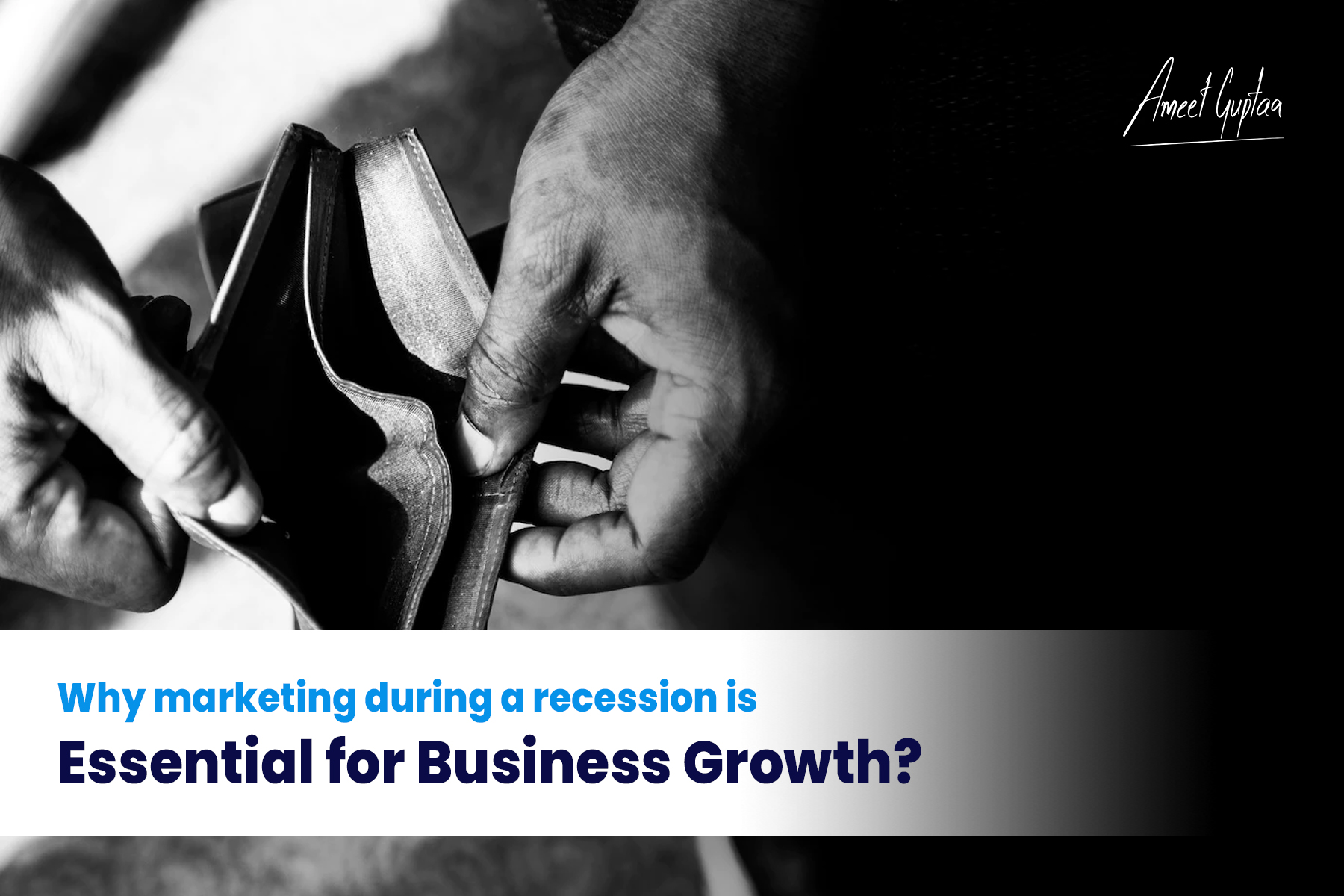Why Marketing during a Recession is Essential for Business Growth?

Both businesses and consumers fear the effects of recessions. Long-term company decisions can prove to be detrimental. Recessions are only transitory, thus you can still carry out marketing during a recession.
Instead of reducing your marketing budget, you could come up with creative marketing strategies during a recession. You can boost profits in a recession if you know how to manage your company’s actions.
However, it’s crucial to analyze and comprehend customer behavior and how they are spending during a recession.
How a Consumer Reacts During a Recession?
When the market declines, most customers tend to reduce their spending. This is because jobs are at risk and inflation drives up the cost of goods, forcing consumers to prepare for the worse.
The majority of customers are more severely impacted by a recession, and they almost eliminate all expenses but necessities like bills, gas, and groceries. Additionally, some customers may reduce their use of some pleasures while occasionally splurging on non-essential things.
Understanding how your current and target clients are adjusting to life during a recession is crucial. Here are some further observations made by typical consumer behaviour during a recession.
1. Most consumers skip going out of the home
In order to cut costs during a recession, consumers forgo dining out and traveling. They may spend more time at home preparing meals and dining. Even they choose to watch a movie at home rather than go to the movies.
2. Most consumers start bargaining
When things are rough financially, consumers start shopping for deals and clipping coupons. In an effort to save money wherever they can, many households spend hours looking for coupons. During a recession, people favour off-brand products over name-brand ones.
Top Reasons for Marketing during a Recession
Marketing is just as important during a recession as it is when things are going more smoothly. However, while advertising during a recession, companies must adjust. Because customers may have altered their spending patterns as they concentrate exclusively on necessities.
As a result, companies must change or adopt new marketing strategies and campaigns to satisfy customer demands. The main justifications for marketing during a recession are listed below.
1. Without marketing, you may lose your business ranking
Cutting marketing expenses during a recession may seem sensible, but it may have the opposite effect. Because it affects your brand awareness, search ranking, and brand loyalty and all these suffer when you slash marketing expenses. Your competitors may then be able to overtake your brand.

To guarantee that your online presence remains strong, it is crucial to maintain your marketing budget and develop an efficient marketing strategy during a recession. This action will increase the trust and loyalty of both your current and potential clients.
2. Re-evaluate your marketing strategy to meet consumer needs
Consumer needs shift during a recession, and they limit their purchases to necessities. Consumers from low- and middle-income households are particularly less inclined to spend on luxury goods.

As a result, you should review your marketing plan in light of consumer buying patterns. Recycling your current marketing materials and sticking with the same marketing approach, however, is a seductive task. But for businesses to succeed in the market, they must be aware of these changes.
3. Businesses may get plenty of room to increase market share
Businesses sometimes reduce their budgets for areas like research and development during a recession, which results in the production of fewer products. And when consumers spend less on goods, production of the current products could decline. On the other hand, delaying the introduction of new items can free up a lot of space for growing market share.

Maintaining research and development expenditures will therefore enable your company to concentrate on developing and upgrading products as well as powerful marketing strategies. Only a few new products are entering the market because consumers are less likely to buy them during a recession.
Additionally, fewer new products will provide consumers with fewer options, giving them no additional incentive to compare prices. Furthermore, a recession is a fantastic moment to make an investment in a new product that will boost the market share of your business.
4. Branding remains the main focus
To remain relevant to your clients during a recession, branding is crucial. Marketing content that targets consumers buying more during a recession, when the consumer has skipped doing so, will not produce favorable outcomes.

Businesses should therefore carefully consider how they can stay relevant during challenging times. Additionally, you must monitor the success of your efforts using your Key Performance Indicators (KPIs). In tough economic circumstances, it can assist you to discover which of your campaigns are effective. And by using this information, you may improve the marketing strategies your company uses to reach out to potential customers.
Conclusion
Businesses struggle during recessions, and in order to create leads and sales, advertising becomes even more essential. However, difficult choices must be made regarding spending plans and even hiring.
Effective marketing in a recession can help your business accomplish leads and sales. Whether economic times are good or bad, partner with me or schedule a call with me to get the most out of your marketing efforts.



